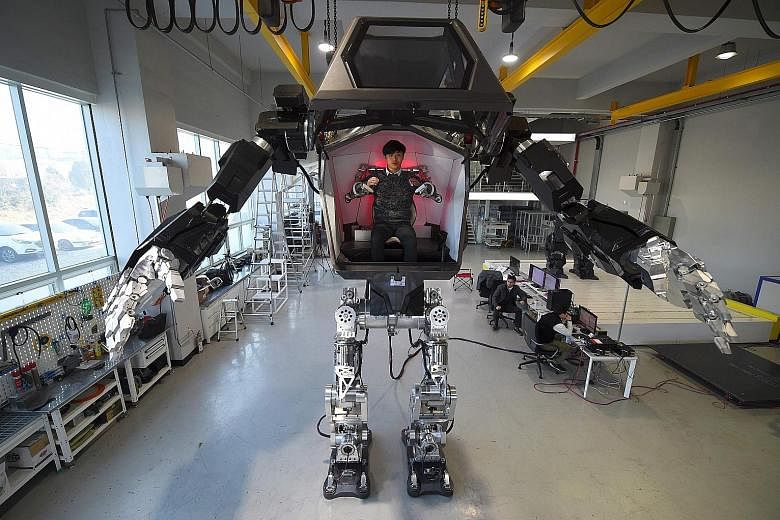BRUSSELS • The unstoppable rise of robots in our everyday lives requires urgent EU rules such as "kill switches", European Parliament members have warned as they passed a resolution urging Brussels into action on automaton ethics.
Ms Mady Delvaux, a Socialist Member of the European Parliament (MEP) from Luxembourg, led the campaign and warned that Europe is passively standing by as robots take an increasingly powerful role that will grow even stronger with the emergence of driverless cars.
To encourage European Union action, she tabled a resolution that also includes the need for an EU agency specialised in dealing with artificial intelligence. The resolution could force the European Commission, the EU's executive arm, to begin work on laws that deal with these issues head-on.
"A growing number of areas of our daily lives are increasingly affected by robotics," Ms Delvaux said. "In order... to ensure that robots are and will remain in the service of humans, we urgently need to create a robust European legal framework."
-
Robots won't take jobs as quickly as feared
-
NEW YORK • The robots are coming, but the march of automation will displace jobs more gradually than some alarming forecasts suggest.
A measured pace is likely because what is technically possible is only one factor in determining how quickly new technology is adopted, according to a study by the McKinsey Global Institute.
The report's multifactor scenarios suggest that half of today's work activities could be automated by 2055. That threshold could be reached 20 years earlier or 20 years later, depending on other factors including economic trends, labour market dynamics, regulations and social attitudes.
The report, which was released on Thursday, breaks jobs down by work tasks - more than 2,000 activities across 800 occupations, from stock clerk to company boss.
It concludes that many tasks can be automated and that most jobs have activities ripe for automation. But the near-term impact will be to transform work more than to eliminate jobs.
Globally, the McKinsey researchers calculated that 49 per cent of time spent on work activities could be automated with "currently demonstrated technology" either already in the marketplace or currently being developed.
That, the report says, translates into US$15.8 trillion (S$22.6 trillion) in wages and the equivalent of 1.1 billion workers worldwide.
But only 5 per cent of jobs can be entirely automated.
"This is going to take decades," said Mr James Manyika, the institute's director and the report's author.
"How automation affects employment will not be decided simply by what is technically feasible, which is what technologists tend to focus on."
NYTIMES
Her resolution was easily passed by the European Parliament's legal affairs committee on Wednesday and now faces a plenary vote, probably next month.
Her report is an overview of how robots are creeping into the lives of humans and what the EU can do to stay in control.
Its recommendations are wide- ranging, including a kill switch allowing humans to shut down a robot at the smallest sign of danger. Without such rules, "humanity could face the apocalyptic scenario where robots turn on their human masters", Ms Delvaux warned in an interview with EU affairs website EurActiv.
The report recommends an EU agency for robotics to oversee all European regulations involving robots, like the ones the bloc already has for food safety and aviation.
Most urgently, the report demands that the EU draw up a legal framework for driverless cars.
Auto builders want to see robotic cars on roads by 2020, but difficult questions remain about who would be legally liable in the case of a car crash.
"If all decisions of a machine are no longer directly attributable to the actions of a person, it must be clarified who is liable if something goes wrong," said Greens MEP Julia Reda, who backed the report.
To fill this void, the MEPs called for an obligatory insurance scheme and a fund to ensure that accident victims are fully compensated.
The report also called for the EU to find ways to help the millions of workers who will inevitably lose their jobs as industries become increasingly automated.
AGENCE FRANCE-PRESSE

